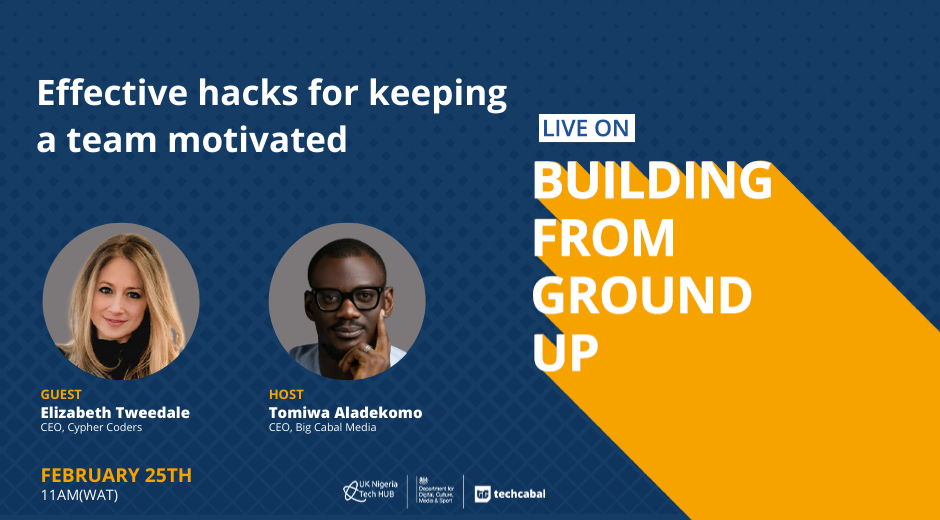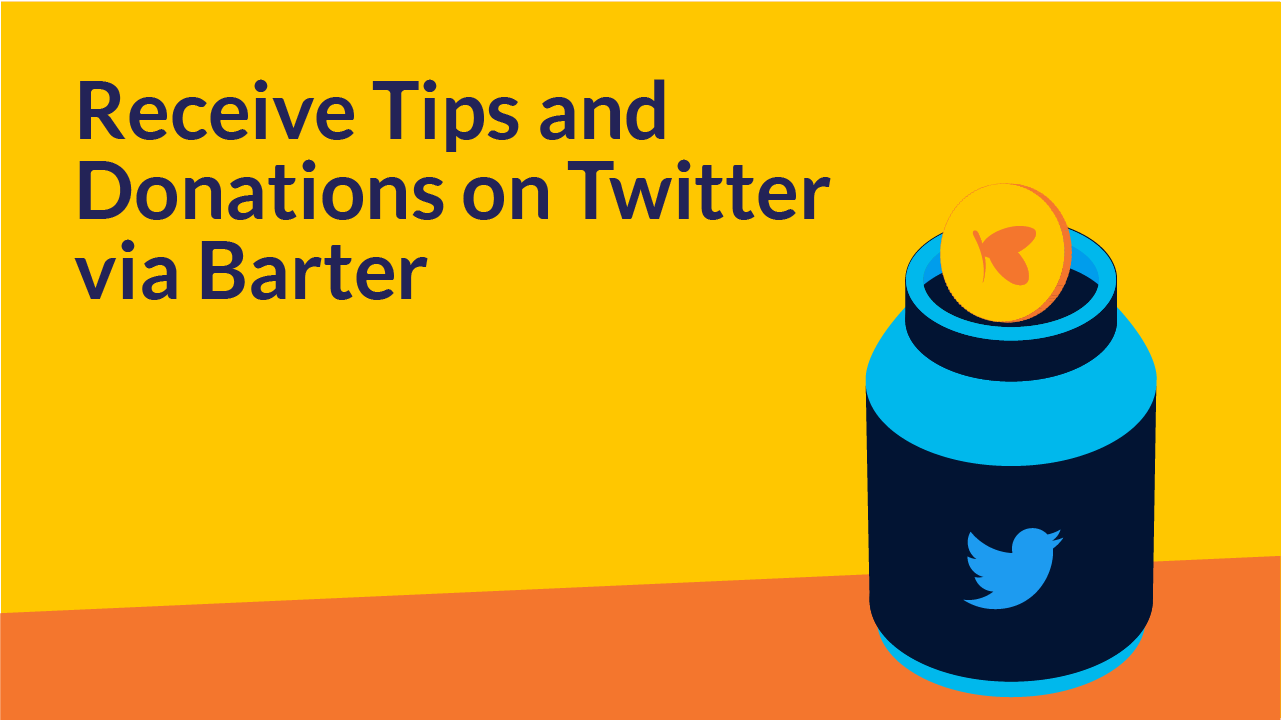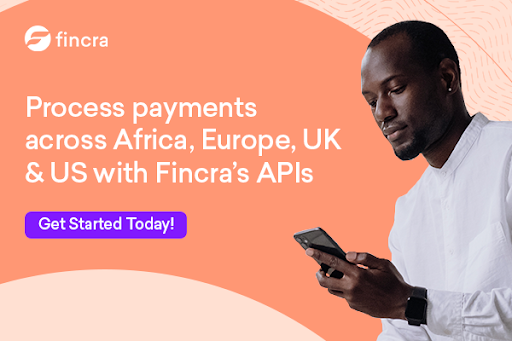
IN PARTNERSHIP WITH

Good morning 🌄
Slack didn’t live up to its name yesterday.
For a few hours on Tuesday, the formal collaboration platform left thousands of users across the globe scrambling as they tried [and failed] to log on and send messages.
However, just as several workers—who shall remain unnamed—resigned themselves to their newfound fate, the platform announced that it had resolved the issues.
Upon the resolution, users across the globe pointed out that the platform had a lot to learn from other unnamed platforms known to go on longer blackouts. 😐
In today’s edition
- Why Nigeria’s crowdfunding agric fintechs failed
- Do you know your customers?
- Apple ignores Netherlands’ $5.7 million fines
- Event: Building from Ground Up
- Opportunities
WHY NIGERIA’S CROWDFUNDING AGRIC FINTECHS FAILED

Agriculture contributes about 30% to Nigeria’s GDP. It’s a $200 billion sector capable of employing millions and improving general quality of life.
There’s space for innovation in the sector and some people saw the dearth, and planted seeds. In fact, between 2016 and 2020, there was an agric fintech boom that saw the birth of agriculture-focused crowdfunding companies such as reQuid and Thrive Agric, and Agropartnerships. While similar, these startups operated different business models. Agropartnerships allowed Nigerians sponsor farmers while reQuid allows its users to buy and sell trade units in farms operated by the partner firms.
These startups provided investment opportunities and offered some of the best return on investment (ROI) in the country, ranging from 15% to as high as 60%.
However, things began to fall apart when investors couldn’t reap what they sowed.
Since then, some players like Thrive Agric, Agrorite, and Farmsponsor have exited the crowdfunding business.
So what went wrong?
COVID, according to the platforms. The pandemic disrupted the platforms distribution channels and harvests.
Experts, however, believe that the platforms had poor business models. Sam Ukoh, Head of Institutional Sales at AFEX, for instance, believes that the platforms did have processes that addressed Nigeria’s lack of good roads, adequate power supply or a market network—all of which are necessary for agricultural productivity.
The platforms also mismatched their investments. While their offerings required long-term investments, the platforms promised investors short-term returns.
Finally, the platforms promised high ROIs which came with its own set of problems.
What’s happening now?
Well, crowdfunding in Nigeria is now strictly regulated. In January 2021, the Securities and Exchange Commission (SEC) passed a law that ensures that crowdfunding can only be raised through an online portal operated by SEC-registered intermediaries. The companies are required to issue sufficient disclosure to investors about the purpose and use of funds, with the threat of fines for defaulters.
Yet to get paid for your hilarious tweets?
Simply add Barter to your Twitter profile and start accepting tips and donations from your followers.
Learn how to set up Barter for Tips.
This is partner content.
DO YOU KNOW YOUR CUSTOMERS?

Well, do you? For banks and other financial institutions, there’s a process called Know Your Customer/Client or KYC which helps these institutions ensure that their customers are who they say they are. It’s basically the “Are you a robot” equivalent for financial institutions.
KYC involves fintech companies and other institutions with financial duties collecting specific information from potential customers—whether individual or corporate entities.
This is often done at the time of onboarding and where relevant, identity documents are validated before customers are approved.
Why is KFC KYC important?
To prevent fraud.
As digital financial services providers penetrate the African market at large, there is a need to ensure that fintech startups lay a strong foundation for a robust risk, fraud, anti-money laundering (AML)/combating the financing of terrorism (CFT), and compliance framework.
This entails having inter alia an effective and efficient Know Your Customer (KYC) program in line with regulatory requirements.
“KYC is at the heart of fraud prevention processes, as required by laws and regulations,” says Mobolaji Bammeke, Chief Compliance Officer at Flutterwave.
KYC policies also ensure sound business practices and offer insightful data on customers. For instance, they can help companies evaluate the financial status of clients and determine creditworthiness where relevant.
How can fintechs get KYC right?
According to Flutterwave’s CCO, there are a few things fintechs can do to KYC the right way.
First, fintechs should balance customer needs with risk management when they’re drafting KYC compliance strategies. If your process is overly exhaustive, you may miss out on lawful customers.
Next, they should know that KYCs are continuous processes. After the initial onboarding, fintechs must regularly monitor client accounts to detect suspicious activity that indicates fraud or relates to financial crimes.
“In addition, fintechs can try other ways of identity verification such as video KYC and semantic analytics,” Bammeke says. Modern technology like biometrics provide new ways to achieve KYC compliance while easing the process for users so don’t be afraid to try them
At Busha, we want everyone everywhere in Nigeria to have access to crypto. That’s why you can buy as low as ₦250, set recurring buys, get the best rates, and soon 🤐 on Busha. Join 300,000+ Nigerians already using Busha.
This is partner content.
APPLE IGNORES THE NETHERLANDS’ $5.7 MILLION FINES

Tech giant, Apple, is facing some heat in the Netherlands.
On Monday, it received its fifth consecutive penalty in the form of a $5.7 million fine from the Dutch government.
What’s happening in Amsterdam?
A situation similar to Apple’s 2019 class-action lawsuit.
According to the Authority for Consumer Markets (ACM)—the regulatory authority that ensures fair competition in the Netherlands—Apple is being unfair to developers in the country. The company is failing to provide app developers in the Netherlands with access to non-Apple payment methods.
Apple charges a hefty 30% commission on all apps bought in its App Store. Since it dominates the market in the Netherlands, many developers need to get their apps on Apple’s App Store to maximize visibility.
Upon complaints by dating apps creators in the Netherlands, the ACM gave Apple a January 15 deadline to provide developers with access to non-Apple payment methods for their apps. This would help developers bypass the 30% fee.
At the time, the ACM set the penalty for failing to meet the deadline at $5.7 million per week, until the conditions are met.
How’s it going so far?
It’s Week 5 and Apple is yet to comply [reasonably] or even pay any of the fines it’s missed—a total of $28.5 million as of Monday.
While the company informed the ACM that it would still charge 27% commissions on third-party payment methods, the ACM rejected the proposal and called it unreasonable.
Fincra provides APIs for making and receiving local & international transfers in EUR, GBP & NGN.
Our APIs fit into all payment applications allowing fintechs to offer virtual bank accounts in multiple currencies.
Sign up for a demo here.
This is partner content.
EVENT: BUILDING FROM GROUND UP

As a founder, how do you motivate and inspire your team to achieve better results? How do you build and maintain a culture of team productivity and satisfaction?.
If this is something you’ve always been curious about, join us this Friday, February 25 at 11 AM (WAT) on #BuildingFromGroundUp.
We’ll be speaking with Elizabeth Tweedale, the founder and CEO of the UK’s leading coding school, Cypher Coders. Elizabeth will be sharing important tips for founders and aspiring founders who are seeking ways to build resilient and efficient teams, as well as other useful lessons from her experience as an entrepreneur.
The event is open to experienced and aspiring entrepreneurs as well as everyone else who is playing in the African technology industry.
Register now to attend.
The #BuildingFromGroundUp series is powered by the UK-Nigeria Tech Hub in partnership with TechCabal.
Note: By clicking on the registration link for any of these events, you’ve indicated interest in the event and will get an invite to attend. To opt out, please ignore the invite..
OPPORTUNITIES
- The Mastercard/Entrepreneur Middle East SME Leaders Awards 2022 is now open to nominations from women leaders in the Middle East and Africa. The Awards will be given across three categories including Personal Achievement Awards, Industry Related Awards, and Small Size Business Awards. Find out more here.
- Applications are now open for the United States African Development Foundation/Stanbic Kenya Grant Foundation Programme 2022. MSMEs in Kenya that are 100% African-owned are invited to apply for the chance to get up to $50,000 in grants. Check it out.
- The Urban Innovative Challenge for Emerging Cities is now open to applications from entrepreneurs building real-world urbantech solutions. Early-stage startups and teams based in Lagos, Nairobi and Kigali can apply to get the opportunity to become Technology Pioneers at the World Economic Forum, and $25,000 worth of AWS credits. Build here.
What else we’re reading
- AfricaWorks’ ambition transcends being a coworking space.
- In DRC, a virtual art gallery is connecting contemporary artists with global clients.
- African Capital Alliance’s Bunmi Adeoye talks trends in Africa’s tech, media, and telecom industry.
- Kenya’s MarketForce raises $40 million Series A round to scale its merchant super app.
- DStv moves to end password sharing on its streaming service.



























